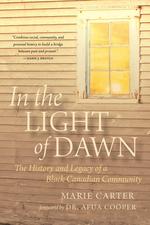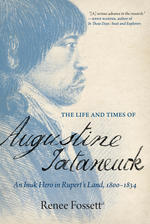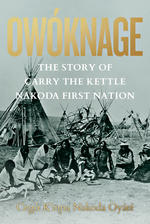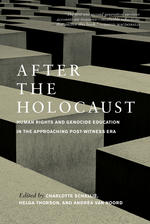Canada
In the Light of Dawn
Illuminating two hundred years of lost Black History through the lens of an iconic abolitionist settlement
In the Light of Dawn shares the compelling story of how the iconic Dawn Settlement—now largely ...
The Life and Times of Augustine Tataneuck
Winner of the 2024 William Mills Prize for Non-Fiction Polar Books
One of the few biographies of an Inuk man from the 19th Century—separated from his family, community, and language—finding his place ...
Who Gets In
An eye-opening account of the Jewish immigration experience in the 1930s, and one man’s battle against anti-Semitic immigration policies.
In 1930, a young Jewish man, Yehuda Yosef Eisenstein, arrived ...
From Left to Right
Winner, Scholarly Writing Award, Saskatchewan Book Awards, 2023
Shortlisted, Shaughnessy Cohen Prize for Political Writing, 2023
Shortlisted, The Hill Times Best Books of 2022
An in-depth look at the ...
Owóknage
Shortlisted, Indigenous Peoples' Publishing Award, Saskatchewan Book Awards, 2023
Shortlisted, Nonfiction Award, Saskatchewan Book Awards
Shortlisted, Publishing Award, Saskatchewan Book Awards
Shortlisted, ...
After the Holocaust
Bringing together some of the last Holocaust survivor stories in living memory, After the Holocaust shares Jewish scholarship, activism, poetry, and personal narratives which tackle the changing face ...
Arrows in a Quiver
In response to the Truth and Reconciliation Commission’s report, Arrows in a Quiver provides an overview of Indigenous-settler relations, including how land is central to Indigenous identity and how ...
Back to Blakeney
Allan Blakeney believed in government as a force for good. As premier of Saskatchewan, he promoted social justice through government intervention in the economy and the welfare state. He created legal ...
Where Once They Stood
Where Once They Stood challenges popular notions that those who voted against Confederation in 1869 and for union in 1948 were uninformed and gullible. Raymond Blake and Melvin Baker demonstrate that ...
No Surrender
Between 1869 and 1877 the government of Canada negotiated Treaties One through Seven with the Indigenous peoples of the Great Plains. Many historians argue that the negotiations suffered from cultural ...









